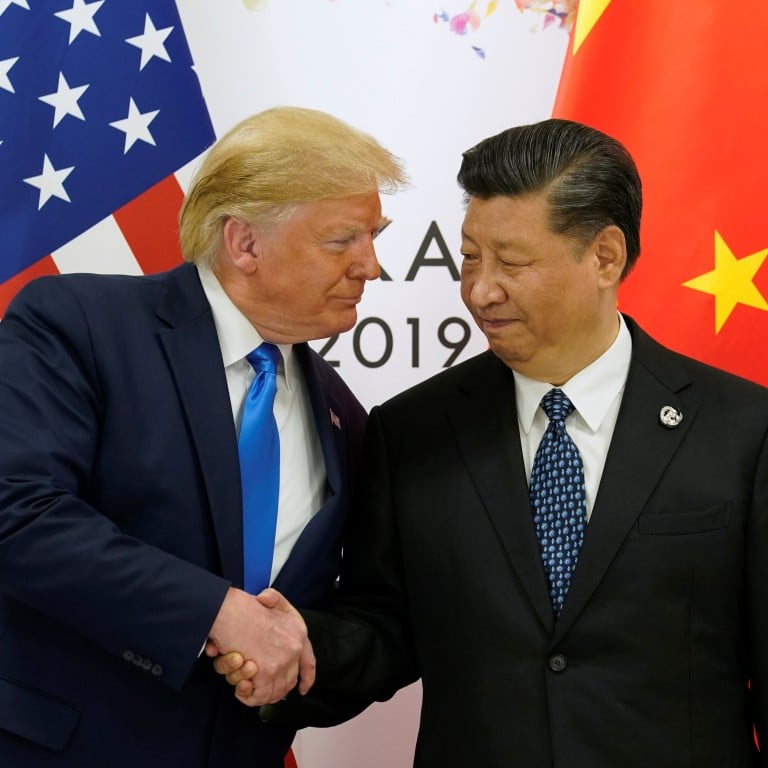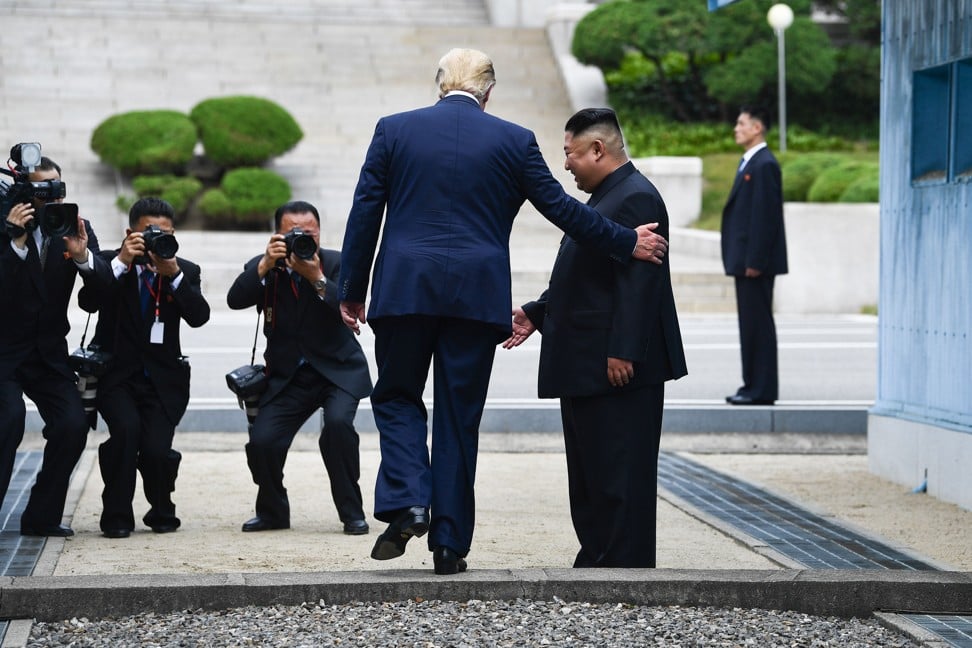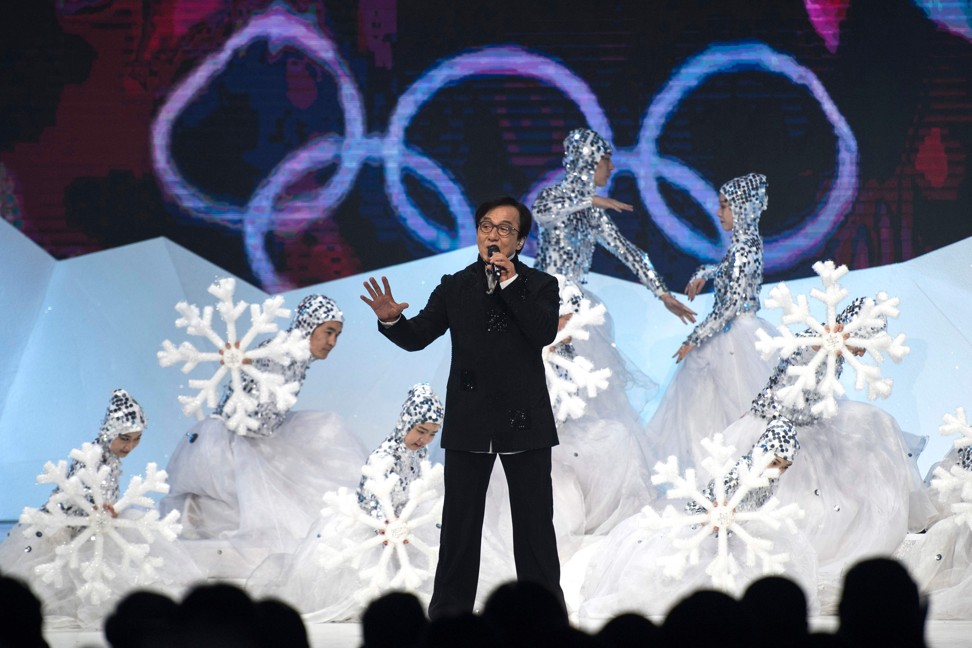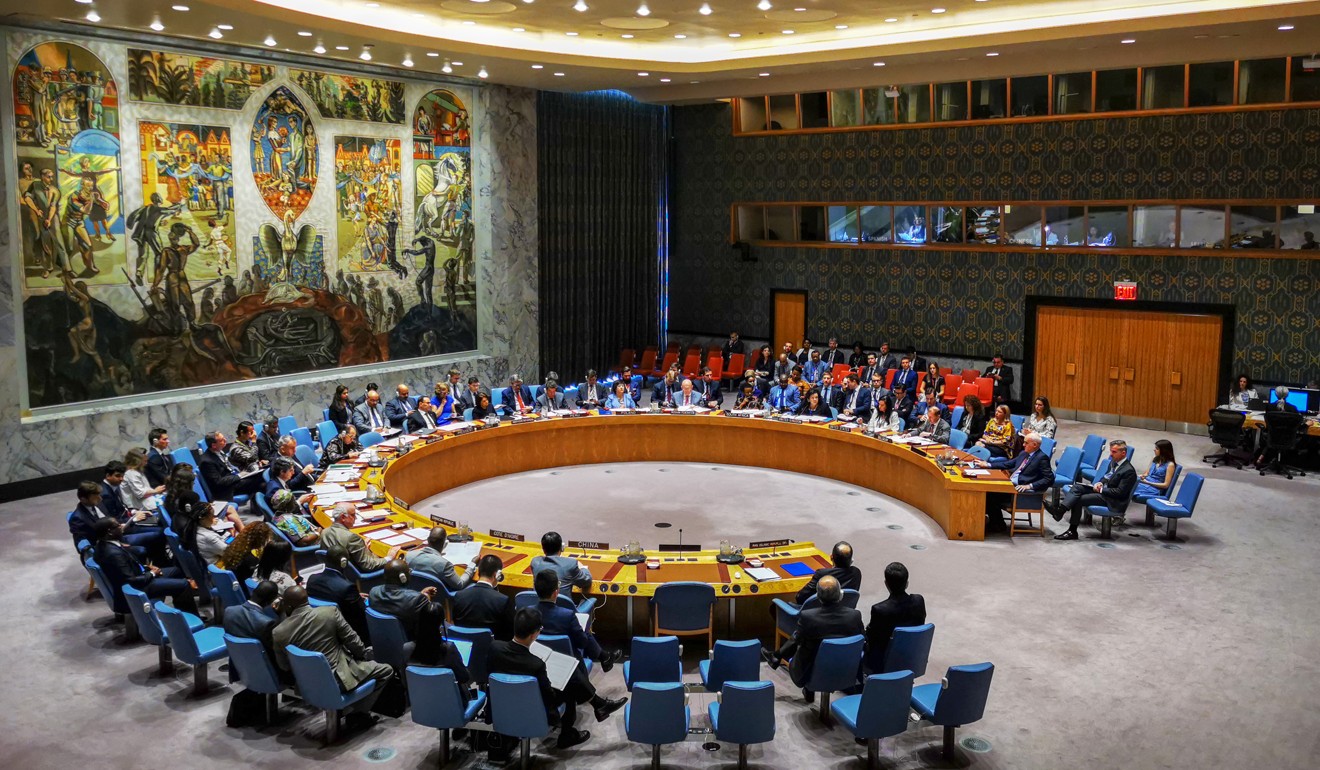
Donald Trump had ‘very good talk’ with Xi Jinping on US-China trade war deal, Hong Kong and North Korea
- Formal signing of phase one agreement being arranged, US President says in tweet announcing phone call between leaders
- Xi told Trump that China is deeply concerned about ‘negative words and deeds’ of US on issues related to Hong Kong, Xinjiang, Taiwan and Tibet
US President Donald Trump and Chinese President Xi Jinping had a “very good talk” by phone on Friday, the first known direct communication since the two sides signed a “phase one” trade deal aimed at de-escalating the trade war.
The call, which covered such contentious issues as trade, Hong Kong and North Korea, came as each leader grappled with domestic political calculations.
The news, as usual, came out on in a Twitter post as Trump wrote on Friday that he “Had a very good talk with President Xi of China concerning our giant Trade Deal.”
“China has already started large scale purchase of agricultural product & more. Formal signing being arranged. Also talked about North Korea, where we are working with China, & Hong Kong (progress!)." He did not elaborate.
A White House official confirmed that the two leaders spoke on Friday morning, while Chinese state broadcaster China Central Television said the phone call was at Trump’s request.
China’s Xinhua state news agency added on Saturday that during the call Xi told Trump that China is deeply concerned about “negative words and actions” by the US on issues relating to Taiwan, Hong Kong, Xinjiang and Tibet.
“Xi noted that the US’ behaviours have interfered in China's internal affairs and harmed China's interests, which is detrimental to the mutual trust and bilateral cooperation,” Xinhua said.
Lau Siu-kai, the vice-chairman of the Chinese Association of Hong Kong and Macau Studies, said it was possible that the Chinese government had requested the US not to execute the recently passed Hong Kong Human Rights and Democracy Act.
The law opens the way for sanctions against mainland Chinese and Hong Kong officials whom Washington deems to have committed human rights abuses against pro-democracy activists.
“[Beijing] knows that Trump has to sign the act as it was passed by both the House of Representatives and the Senate ... what it could do was ask not to execute this act,” Lau said.
“With the word ‘progress’, Trump might have told President Xi that he would act carefully,” he said.
He added that any action taken by the US against Hong Kong could hamper American economic and political interests in the city.
The “phase one" agreement announced last week between the two giants is the latest chapter in an 18-month trade war that has rattled global markets and raised tensions.
Much of the deal’s fine print has not been released. But as outlined, Washington agreed to postpone tariffs on around US$160 billion of mostly Chinese-made consumer goods scheduled to go into effect last Sunday.
The two sides agreed to leave tougher issues for “phase two” and even “phase three” pacts, although some doubt these instalments will materialise, given how difficult it has been to get this far.
North Korea on agenda as US envoy Stephen Biegun visits China
John Sitilides, a geopolitical strategist at Trilogy Advisors in Washington, said that Trump may want to engage with Xi with “greater political momentum and available negotiating leverage than ever”, given impeachment proceedings against the president that seem to have “strengthened his prospects for re-election in November 2020”, as supporters rally around him.
Late on Wednesday, the House of Representatives formally voted to impeach Trump on charges that he abused his office and obstructed Congress. The next step would see the accusations go to the Republican-controlled Senate, where they would be almost certain to be voted down.
Trump is keen to avoid anything that would act as a drag on consumption, markets and the wider economy, as he gears up for a re-election campaign in 2020, analysts said.
But the benefits of this phase one trade deal go both ways, also serving Xi's political interests, they added.
"To stave off further tariffs, Mr Xi sees he may have no choice but to negotiate with President Trump in further talks through 2024 on more difficult issues, such as Beijing's protectionist policies over favoured domestic industries and on codifying structural changes to China's constitution,” Sitilides said.
The analyst added that Xi also seeks Trump's support in holding back growing US criticism of the Chinese Communist Party's handling of the Hong Kong protests and the Xinjiang human rights violations against Uygur Muslims, as well as Congressional calls for a television boycott of the 2022 Beijing Winter Olympics.
Trudeau to Trump: Don’t sign US-China trade deal until Canadians released
Trump signed the Hong Kong Human Rights and Democracy Act last month, while both houses of Congress also have passed legislation requiring a stronger response to Beijing's treatment of its Uygur Muslim minority, although it has not yet become law.

Experts noted that the announced trade agreement and the leaders' phone call do not necessarily signal that bilateral tensions will continue to ease. The context, they add, is what some have characterised as deepening strategic rivalry.
Sean King, a former official in the US Department of Commerce who is now a senior vice-president at the political consulting firm Park Strategies, said Trump wants to “keep the good economic times rolling and be able to say he's made a deal that no one else could have”.
US-China trade deal is a poor bargain for US businesses and consumers
"[Also,] leaders call each other all the time and President Trump personalises diplomacy more than most. Hence the call doesn't strike me as anything out of the ordinary,” King said
He added that Beijing is unlikely to move closer to Washington’s world view on Hong Kong or North Korea so “any real cooperation here suggests [Washington] blinked somewhere along the way”.
The North Korean issue may also arise as a battle ground – not as a common ground – between the two states in the future.

Pyongyang has been threatening Washington with what it called a “Christmas gift” that US officials interpret as either a nuclear weapons test or a ballistic missile test.
On Monday Beijing – along with Moscow – proposed that the UN Security Council lift sanctions against North Korea. But Washington baulked at the idea, with a State Department official saying the move was “premature” for North Korea.
Trump impeachment clouds prospects for US-China trade war talks
Washington believes that Beijing is not playing enough of a role in denuclearising North Korea, said a former US official who requested anonymity because of the issue’s sensitivity.
Soo Kim, a former CIA analyst now at the Rand Corporation, a global policy think tank, noted that China's growing influence in the Korean peninsula presents a challenge to Washington.

“Beijing's gravitational pull is drawing in not only North Korea but perhaps South Korea, as well,” she said. “Seoul's ongoing cost-sharing negotiations with Washington and the two countries' divergent positions on dealing with North Korea give reason to suspect [or] fear the US and the ROK [are] going separate ways.”
Seoul, the analyst added, has also indicated it might be weighing other options following a meeting between South Korea’s and China’s defence chiefs.
“Maybe China will seek a more moderating, truly mediating role between Pyongyang and Seoul to maintain its own interests of stability and reduce the influence of the US in the region,” Kim said. “And obviously, this would also impact the security and stability of Japan.”
Additional reporting by Elizabeth Cheung and Reuters

